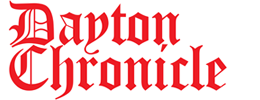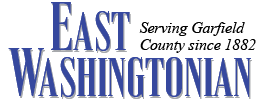Commentary
Coronavirus an unfortunate byproduct of Communism
March 26, 2020
In the Seventies, with President Richard Nixon’s Détente part of the international atmosphere, Soviet engineers visited the U.S. Army Corps of Engineers in Walla Walla. The Cold War was in the process of warming and this intellectual exchange was part of it.
The group of C.C.C.P. engineers spoke Russian, and apparently no translator had been assigned. When it was discovered one of the Russians also spoke French, Walla Walla photographer Earl Robergé was recruited to act as a linguistic liaison.
Robergé was eccentric, a small man with a spry physique and twinkling eyes, drove a classic Jaguar XKE, and had an unusually large watch, which he coyly suggested was standard issue for O.S.S. operatives during World War II. It didn’t take much imagination to envision him blowing up rail lines in Occupied France.
In addition to translating for the group, Robergé spent some off-duty hours with the Russians. He told me this story:
He was giving the Russian engineers a tour of Walla Walla and they went into Fleenor’s Supermarket in the Eastgate. The visitors’ eyes were huge at the plethora of food stocking the shelves, a sight never seen in the U.S.S.R.
“Is set up,” one of the Soviets remarked.
“Excuse me?” Robergé asked.
“Is set up. You have brought food from all stores to this one to make us believe all stores have this much food. No store in Russia has so much food.”
Robergé proceeded to escort his entourage around town, visiting the various grocery stores to show the Russians that their suspicions weren’t true. Earl, a man who may have risked his life to defeat fascism, was more pointed in his reply to his Soviet guest, driving home his point with words inappropriate for a family newspaper.
The point is capitalism and liberty engender a system which has vastly more benefits than a single-party, totalitarian socialist regime. In this case, people in the United States had–and still have–exponentially more of what the Russians considered necessities for daily living. I think that also goes for food safety.
The outbreak of coronavirus is believed to come from a “wet market” in Wuhan, China. Videos show these markets teeming with people surrounded by cages and tables with all sorts of domestic and wild animals, and fish…cages stacked one upon another. Civet cats in a cage above one with chickens, above one with turtles, and so on.
Want bat for dinner? No problem. The vendor grabs one and slaughters it on the spot. No inspection, little or no sanitation. The same is probable if you’re looking for raccoon dogs, porcupine, deer, fox. The list goes on.
Better wear rubber boots because the floor is an unsightly slurry of guts, blood, bits and pieces of various animals. I can’t imagine what it might smell like.
So we’re now somewhere in the timeline of the COVID-19 debacle and it points up the stark contrast between capitalism and totalitarianism. In America and other developed countries, food safety policies produce the desired end result: food that is safe to eat, plentiful and nutritious. It’s something we’re so accustomed to, it is taken for granted. In single-party, non-transparent Communist China, many of its 1.39 billion mouths get their food from more dubious, non-regulated sources.
Which brings us to the current current in our republic’s election cycle: a presidential candidate and swarms of followers who believe that socialism is the answer. The loss of liberty isn’t the only thing lost in a socialistic government system.







